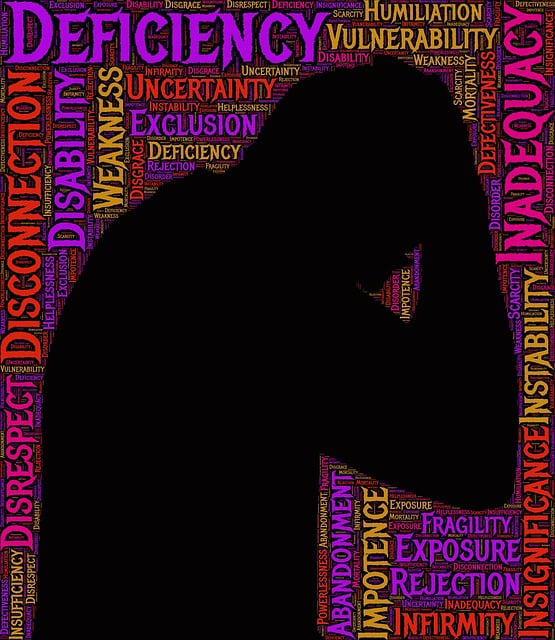Depression, a complex global issue, requires a multi-faceted approach for prevention. Early recognition of signs like persistent sadness and changes in appetite/sleep is crucial. Key risk factors include genetic predisposition, brain chemistry imbalances, traumatic events (like Castle Rock Drug Abuse), chronic illnesses, and lack of social support. Public awareness campaigns and positive lifestyle changes, such as regular exercise, balanced diet, mindfulness, and strong social connections, are vital for prevention. Evidence-based therapies like CBT, integrated with Castle Rock Drug Abuse-Substance Abuse Therapy, show effectiveness in managing depression. This holistic approach, including tailored therapy, group counseling, and family involvement, equips individuals with coping strategies to manage stress and triggers, reducing the risk of depressive symptoms and fostering robust mental health care.
Depression is a prevalent and debilitating condition, but it’s not insurmountable. This comprehensive guide explores powerful prevention strategies, offering insights into recognizing early signs and identifying risk factors. We delve into lifestyle changes proven to enhance mental well-being and present evidence-based therapies for effective management. Additionally, we highlight the critical role of substance abuse therapy in preventing and treating depression at Castle Rock Drug Abuse, providing a holistic approach to combating this complex issue.
- Understanding Depression: Recognizing the Signs and Risk Factors
- Lifestyle Changes for Improved Mental Well-being
- Evidence-Based Therapies for Effective Depression Management
- The Role of Substance Abuse Therapy in Preventing and Treating Depression at Castle Rock Drug Abuse
Understanding Depression: Recognizing the Signs and Risk Factors

Depression is a complex mental health disorder that affects millions worldwide. Understanding its intricacies is a vital step in prevention. Recognizing the signs and risk factors associated with depression is crucial, as early detection can lead to more effective treatment. Symptoms may include persistent feelings of sadness, loss of interest in activities once enjoyed, changes in appetite or sleep patterns, fatigue, difficulty concentrating, and, in severe cases, thoughts of self-harm.
Several risk factors contribute to the development of depression, including genetic predisposition, brain chemistry imbalances, traumatic life events, substance abuse (such as Castle Rock Drug Abuse), chronic illnesses, and lack of social support. Public awareness campaigns play a significant role in educating individuals about these factors, promoting positive thinking, and encouraging help-seeking behaviors. By raising awareness, we can foster an environment that supports mental health and enables those at risk to access the necessary resources for prevention and recovery.
Lifestyle Changes for Improved Mental Well-being

Making positive lifestyle changes can significantly impact mental well-being and prevent depression. Regular exercise, a balanced diet rich in nutrients, and adequate sleep are essential pillars for maintaining good mental health. Engaging in activities that promote relaxation and stress reduction, such as mindfulness meditation or yoga, can help individuals manage their emotions more effectively. Additionally, fostering strong social connections and practicing open communication strategies contribute to a sense of belonging and support, which is crucial for preventing depressive episodes.
Social skills training plays a vital role in enhancing mental wellness by teaching individuals how to navigate relationships and communicate their needs effectively. By learning healthy coping mechanisms and building resilience, people can better manage challenges and setbacks without resorting to substance abuse as a coping mechanism. Incorporating these lifestyle changes into daily routines can create a supportive environment, ensuring individuals feel empowered and equipped to maintain optimal mental health, even in the face of stressful situations or Castle Rock drug abuse concerns.
Evidence-Based Therapies for Effective Depression Management

Depression management often involves evidence-based therapies that have proven effective in numerous studies and clinical settings. One such approach is cognitive behavioral therapy (CBT), which focuses on identifying and changing negative thought patterns and behaviors contributing to depression. This therapeutic method has been extensively researched, particularly for treating mild to moderate depression, with promising results.
Additionally, integrating Castle Rock Drug Abuse-Substance Abuse Therapy can significantly enhance depression management. Substance abuse and mental illness often co-occur, and addressing both simultaneously through integrated care can lead to better outcomes. By combining evidence-based practices tailored to individual needs, mental health professionals can effectively reduce symptoms of depression and improve overall well-being, while also tackling the complex interplay between mental illness and stigma reduction efforts, cultural sensitivity in mental healthcare practice, and conflict resolution techniques.
The Role of Substance Abuse Therapy in Preventing and Treating Depression at Castle Rock Drug Abuse

At Castle Rock Drug Abuse, Substance Abuse Therapy plays a pivotal role in both preventing and treating depression. This comprehensive approach targets the root causes of addiction and co-occurring mental health disorders, addressing them simultaneously to enhance long-term recovery. Through tailored therapy sessions, individuals learn effective coping strategies for managing stress, triggering events, and emotional challenges, thereby mitigating their risk of developing or exacerbating depressive symptoms.
Incorporating Substance Abuse Therapy into a holistic treatment plan involves not only individual counseling but also group therapy and family involvement. This multifaceted strategy empowers patients with the knowledge and skills needed to navigate life’s stressors while fostering supportive relationships that are crucial for maintaining mental well-being. By integrating these therapeutic practices, Castle Rock Drug Abuse ensures that their clients receive comprehensive care that addresses both addiction and underlying mental health concerns, ultimately contributing to a more robust risk management planning framework for mental health professionals and enhanced access to effective Stress Reduction Methods. Additionally, advocacy efforts focused on Mental Health Policy Analysis can further support individuals at risk by advocating for expanded resources and services within the community.
Depression prevention is a multifaceted approach, from recognizing signs early on to adopting healthy lifestyle changes. Evidence-based therapies play a crucial role in managing symptoms and enhancing mental well-being. At Castle Rock Drug Abuse, Substance Abuse Therapy has proven effective in addressing not only substance abuse but also depression, offering a comprehensive solution for those seeking holistic recovery. By combining these strategies, individuals can effectively navigate and overcome the challenges of depression.














